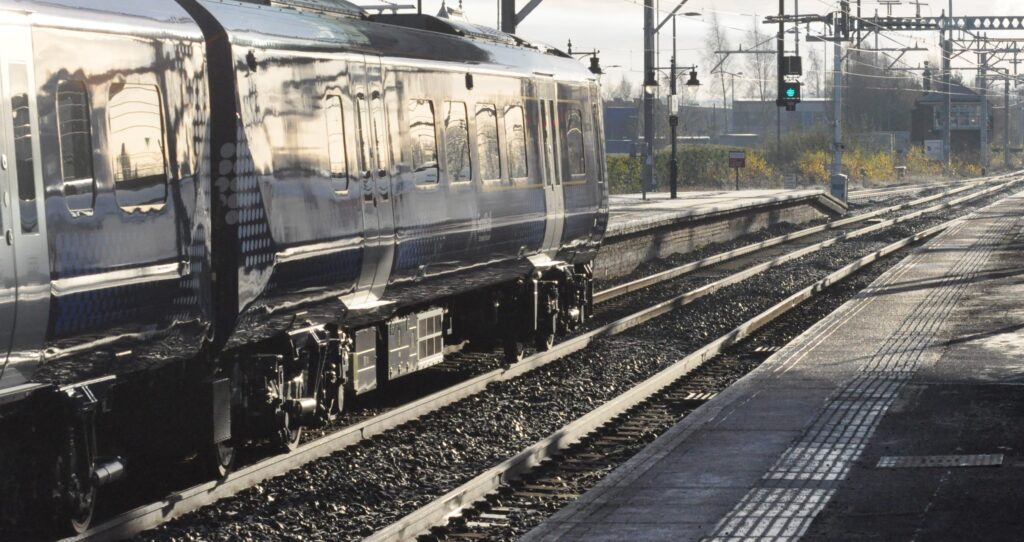At least the man with the ‘kick me’ sign on his backside didn’t pin it there himself. The railway pinned its own sign, judging by the kicking people gave it over the New Year as fares rose just as commuters returned to work.
Last May 2018’s broken promises at Thameslink and Northern made this triumph of heat over light even warmer. Fault for Thameslink’s broken promises sits with late decisions from the Department for Transport. Network Rail’s electrification delays afflicted Northern.
I can see why fares should be held stable to compensate passengers for May’s meltdown. However, that overlooks the compensation that rail companies already offer. I have no time for Labour complaining that a Conservative government has increased fares. The Tories are merely continuing a policy that Labour started.
And it’s rich for Transport Secretary Chris Grayling to claim that he doesn’t run the railways and then issue a press release on January 2 2019 headlined ‘Grayling slashes rail fares for a generation of rail passengers’.
Too expensive yet too crowded
There’s a contradiction between complaints that rail fares are too expensive to allow people to travel and complaints that trains are too crowded. Season tickets have hefty price tags but each journey is cheap compared with walk-on tickets. Rail companies have recently spent millions of pounds to make trains longer to satisfy these commuters. This expensive capacity often lies idle for the rest of the day.
There’s a contradiction in calls to cut revenue and increase investment. If fares were frozen then taxpayers would see higher bills. They should pay some of rail’s bills because they benefit from the network even if they don’t individually use it. But it’s odd that rail unions call for higher subsidies. This is because rail users generally earn more than bus passengers whose fare rises go unnoticed.
What is clear is that train operators and Network Rail need 2019 to be better than 2018. They must reverse their broken promises around trains and timetables. Over the New Year, various television interviews followed a simple theme of rising fares but no service improvements.
One woman stood in front of Haymarket station to complain, seemingly oblivious to ScotRail’s new and longer electric trains. Perhaps she did not know. After all, for many people a train is just a train.
Broken promises in Scotland
I fear she might be right because ScotRail’s December timetable introduction is not going well. I found that it started well on December 10 (RAIL 868) but then cancellations hit. ScotRail hadn’t trained enough crews for its new services. Transport Scotland issued a remedial plan notice on Christmas Eve demanding a recovery plan. The notice followed ScotRail’s breach of cancellation thresholds before the new timetable started. This suggests that it’s not employing enough drivers and guards. It anticipated further breaches, particularly on services from Edinburgh to Fife.
The company’s problems stem from Hitachi’s late delivery of Class 385s and Wabtec’s late delivery of refurbished HSTs with power doors. In place of ‘385s’, ScotRail drafted north a fleet of Class 365s to allow it to switch Edinburgh-Falkirk High-Glasgow services to electric trains. This meant training crews on this interim class. To cope with Wabtec’s failure, ScotRail started training guards to cope with slam-door HSTs.

ScotRail’s training bill doubled at a time when it had too few crews for current services. Asking crews to work extra turns as overtime would have helped but the RMT union imposed a ban which it only removed when ScotRail promised higher overtime payments.
Lessons for rail companies
Scotland provides lessons for the rest of the railway as it plans 2019’s deliveries. The Office of Rail and Road aired the first in its report into May 2018’s broken promises – don’t hide bad news. Managers must actively check what’s going on and not just accept assurances that all is running to plan.
A second lesson is that an industry with many moving parts will never run entirely smoothly. Infrastructure upgrades may be late. Train deliveries may be late. Timetables, crew rosters and train diagrams may work on paper but not in practice.
A third lesson is that train operators must stop poaching train crew from other operators to run the extra services they’re promising.
Perhaps the biggest lesson is to realise that over-promising and under-delivering harms the railway. Rail companies broke promises for too long for passengers to believe any of them, even when they arrived. It is disappointing that governments stripped enhancement projects from April 2019’s five-year control period but it’s a blessing in disguise. They will treat each proposal on its merits. This gives the railway a chance to calmly consider which it can realistically deliver.
It’s time to take a break from enhancements. Concentrate on running today’s network. Don’t promise extra trains or new services. From boardroom to ballast, give people a break not broken promises. Provide for passengers and freight shippers a railway that boringly delivers what it says.
This article first appeared in RAIL 870, published on January 16 2019.